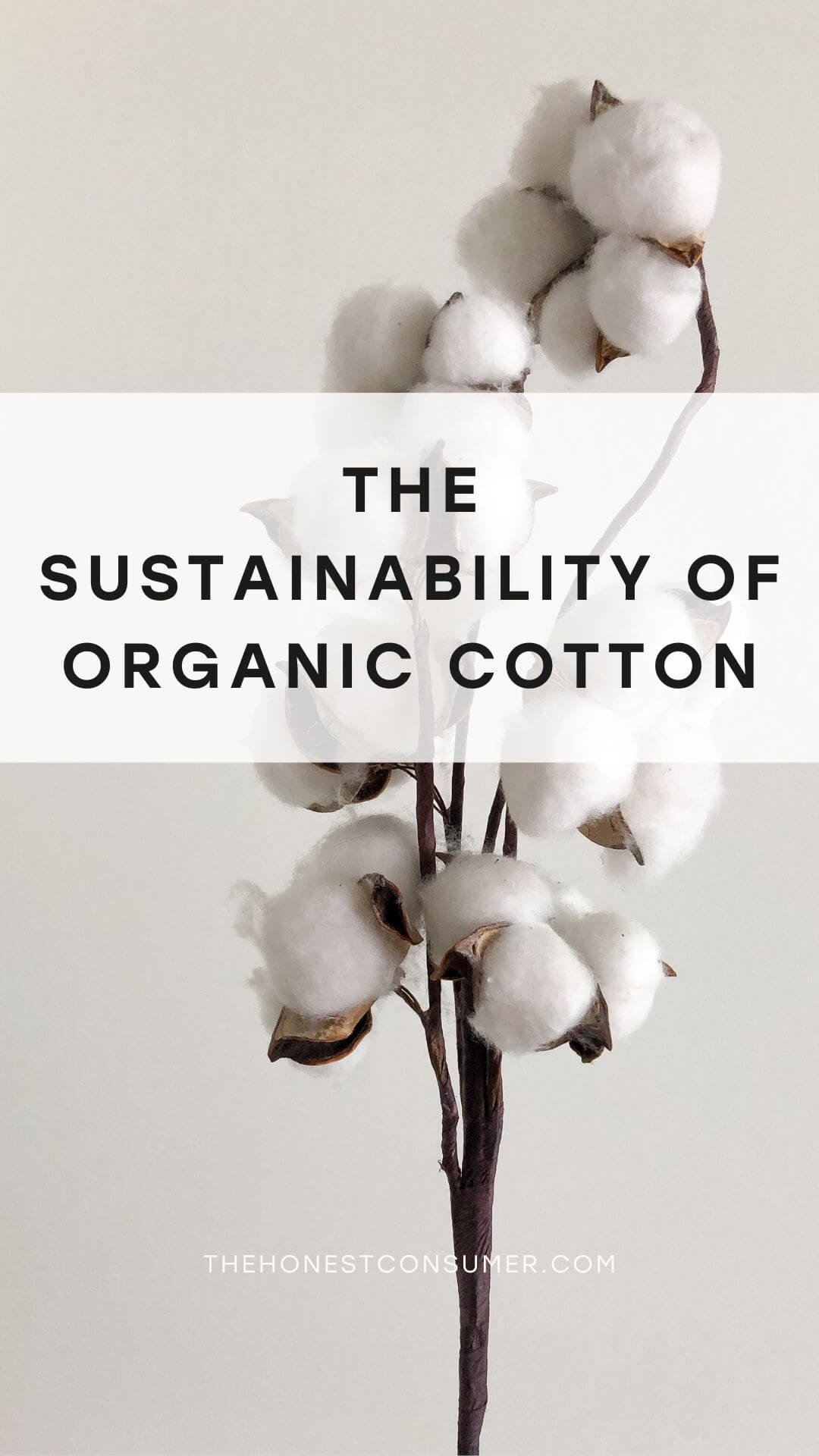Why is Organic Cotton a Better Choice Over Conventional Cotton?
Organic cotton has gained a lot of popularity in the sustainable fashion industry. Let’s discuss why this fabric can be an eco-friendly choice!
As someone who wears a lot of cotton clothing, I think it’s so important to know the benefits of choosing organic.
This guide will explore environmental impacts, the farmer’s quality of life, and the clothing itself!
This post does contain affiliate links which means we might make a commission off of a purchase you make, but this is at no additional cost to you!
Why organic cotton is better for the environment?
Choosing this sustainable material can be kinder to the Earth!
ORGANIC COTTON uses less pesticides
Conventional cotton consumes a staggering 16% of all the pesticides in the world. These chemicals seep into the soil groundwater, contaminating water sources for surrounding populations and aquatic life.
However, organic cotton is grown under strict organic standards which prohibit the use of synthetic pesticides and fertilizers, as well as genetically engineered seeds.
Instead, farmers use natural pest-reduction methods and tools which promote soil fertility and reduce the impact of farming on water resources.
ORGANIC COTTON USES LESS WATER
In 2017 the Textiles Exchange, reported that organic cotton uses 91 percent less ‘blue’ water when compared to conventional cotton.
Defining blue water as coming from freshwater lakes and rivers. (from groundwater and surface-water bodies, such as freshwater lakes and rivers) than conventional cotton.
FEWER GREENHOUSE GAS EMISSIONS
Organic cotton creates 46% fewer greenhouse gas emissions than conventional cotton due to fewer chemicals and mechanized farming practices.
Why organic cotton is better for farmers?
Along with being better for the environment, organic cotton is also kinder to the farmers!
Safety of the Cotton Farmers
Using chemicals in conventional cotton farming can endanger the lives of farmers who don’t always have the necessary safety equipment.
Pesticides are toxic and cause a number of serious health effect and illnesses such as headaches, asthma, blindness, cancer and more.
Organic cotton farming helps minimize and avoid highly toxic substances from the environment and keeps farmers safe.
More Fair Trade Practices
The high costs involved in conventional cotton farming puts many small-scale farmers in financial jeopardy. This has contributed to a farmer’s suicide epidemic in India.
There are also serious labor concerns- for example, in China hundreds of thousands of Muslims have been forced into unpaid manual labor in the Xinjiang cotton sector, while child labor has been reported to be widespread in Uzbekistan.
Organic cotton production typically requires a third party certification which encourages transparency.
The supply chain is more traceable which ensures that farmers are well-compensated and have safe working conditions.
Why is Organic Cotton Better to Wear?
Don’t forget about the quality of clothing you wear!
ORGANIC COTTON IS MORE GENTLE ON YOUR SKIN
We’re often worried about what we put into our bodies, but what about what we wear? Cotton receives an average of 7kgs of pesticides per acre. Some of these chemicals used are listed as “highly hazardous” by the World Health Organization.
Traces of pesticides often remain in clothing even after washing, which poses a health risk. With organic cotton, you won’t have to worry about chemical exposure on your skin.
ORGANIC COTTON IS MORE DURABLE THAN CONVENTIONAL COTTON
Since organic cotton is not treated with harsh chemicals, it has softer, longer natural fibers which are woven tightly, creating a more durable and comfy fabric. As a result, buying organic cotton will save your pockets in the long run.
I personally think that my organic cotton clothing doesn’t pill as easily as my conventional cotton clothing. I do think my organic cotton clothes have a longer life span.
If you enjoyed this post consider checking out some of our organic clothing guides.
Clothing Brands Using Organic Cotton
For more tips & tricks on sustainable living be sure to follow The Honest Consumer on social media, subscribe to our newsletter, & check out the Ethical & Sustainable Brand Directory.




